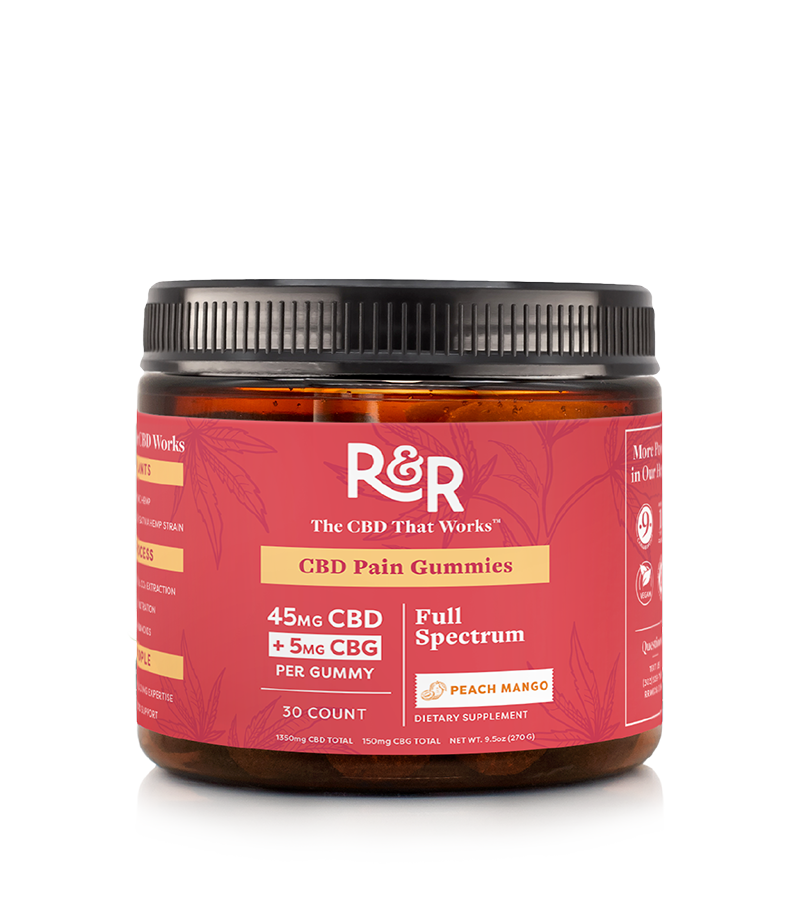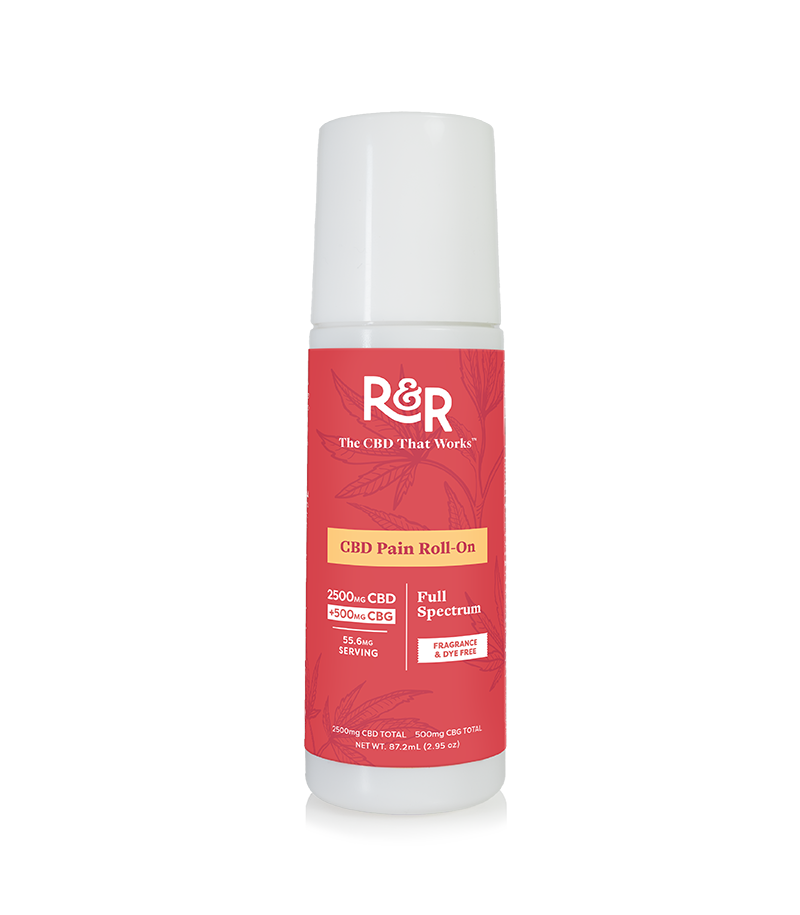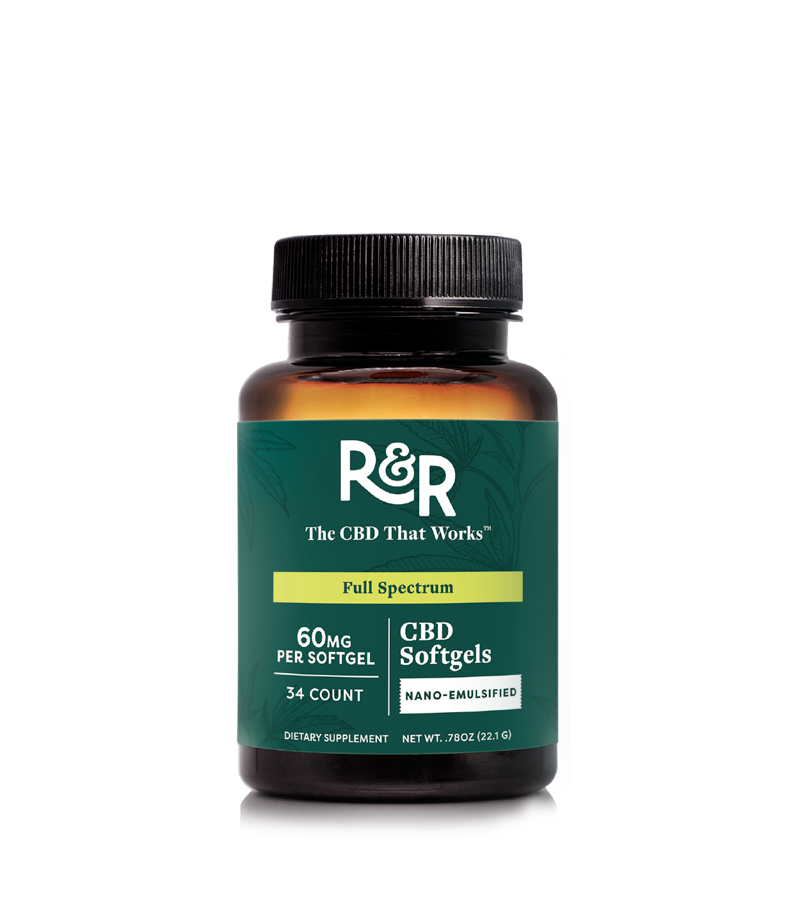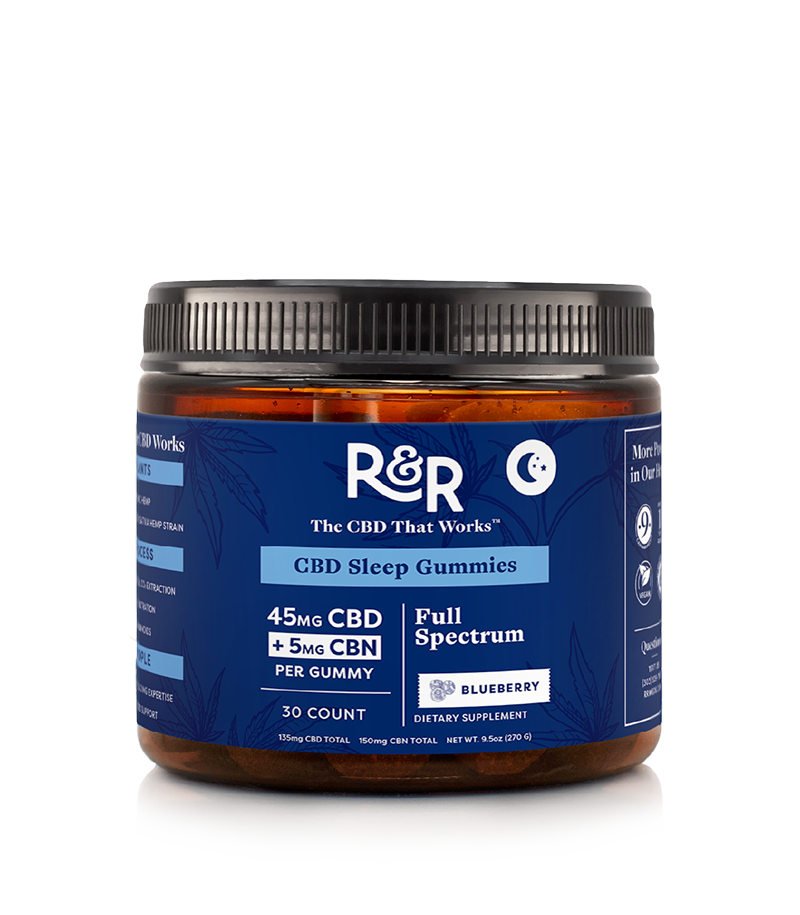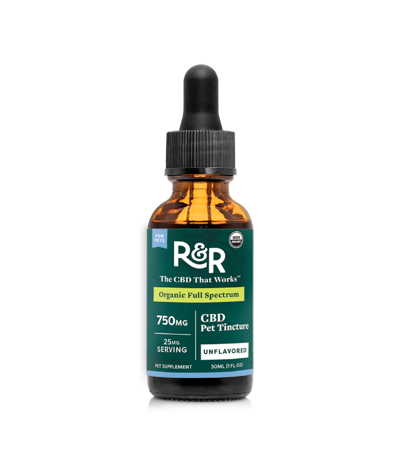Stress can take a toll on your mental well-being. But did you know it can also manifest as physical pain? When you are under chronic stress, your body may ache in various places.
Stress-related pain is a common complaint, yet many people do not realize the connection between their mental state and their physical discomfort. Understanding how stress can cause body aches is the first step in finding relief and preventing future episodes.
In this article, we explain how stress-induced body aches develop and the areas of the body that are most commonly affected. The goal is to equip you with strategies to manage stress-related pain.
Key Takeaways
- Stress can cause muscle tension, inflammation, and pain, often in the neck, shoulders, back, jaw, and stomach.
- To alleviate stress-related discomfort, practice relaxation techniques, exercise regularly, and live healthily with proper sleep and nutrition.
- Heat/cold therapy, massage, and natural options like CBD or anti-inflammatory herbs can provide targeted pain relief and relaxation.
- Address stress triggers, prioritize self-care, and consult professionals if pain persists or worsens to prevent long-term health impacts.
What Is Stress-Induced Body Ache?
Stress-induced body ache refers to physical pain or discomfort that arises from or is worsened by psychological stress. When you experience stress, your body releases cortisol and adrenaline, which trigger a "fight or flight" response.
This can cause your muscles to tense up, leading to pain and stiffness.
Stress-related pain often feels like a dull ache or soreness that persists without an obvious physical cause. It may come and go with your stress levels or become chronic if the stress is ongoing.
Identifying stress as a contributing factor to body aches is vital to finding an effective treatment approach.
Examples of Stress-Induced Body Aches
Stress can manifest in various types of physical pain. Some common examples include:
- Headaches and migraines: Tension headaches, which feel like a tight band around your head, are often triggered by stress. Migraines, which cause intense throbbing pain, can also be brought on or worsened by stress.
- Neck and shoulder pain: When stressed, you may unconsciously clench your jaw or hunch your shoulders, leading to tension and pain in your neck and upper back.
- Back pain: Chronic stress can cause your back muscles to tighten and spasm, resulting in persistent lower back pain. Poor posture due to stress can also contribute to back discomfort.
- Jaw pain or temporomandibular joint (TMJ) disorders: Stress often leads to teeth grinding or jaw clenching, which can cause pain and clicking sensations in the jaw joint.
- Stomach aches and gastrointestinal discomfort: Stress can disrupt your digestive system, causing symptoms like stomach pain, nausea, diarrhea, or constipation. Conditions like irritable bowel syndrome (IBS) may also be triggered or exacerbated by stress.
How Does Stress Cause Body Aches?
When you are under stress, your body becomes highly alert, preparing to fight or flee from a perceived threat. This physiological response triggers a cascade of hormonal changes that can lead to muscle tension and pain.
Stress causes muscles to tighten and contract, resulting in knots, spasms, and soreness. Over time, chronic muscle tension can lead to persistent pain in various parts of the body, particularly in the neck, shoulders, and back.
Stress also impacts the joints and musculoskeletal system. When stressed, the body releases inflammatory chemicals that can exacerbate conditions like arthritis or fibromyalgia. Stress can also cause one to adopt poor posture or engage in repetitive motions, contributing to joint pain and stiffness.
Your immune system also plays a role in stress-related pain. Chronic stress weakens the immune response, making you more susceptible to inflammation and pain-inducing conditions.
Moreover, stress can also disrupt sleep patterns, and a lack of restorative sleep can amplify pain sensations.
Specific painful symptoms linked to stress include tension headaches, migraines, jaw pain from teeth grinding or clenching, and digestive discomfort such as stomach cramps or irritable bowel syndrome (IBS).
These symptoms often improve when stress levels decrease, highlighting the direct connection between mental stress and physical pain.
Common Areas Affected by Stress Pain
Stress can manifest as physical pain in various parts of the body. While everyone experiences stress differently, certain areas are more prone to stress-related discomfort. Understanding which body parts are commonly affected can help you recognize when stress might be the culprit behind your aches and pains.
Neck and Shoulders
The neck and shoulders are prime spots for stress-induced tension. When stressed, you may unconsciously hunch your shoulders or clench your neck muscles, leading to stiffness and soreness.
Poor posture can cause the muscles to become overworked and develop painful knots or trigger points.
Stress-related neck and shoulder pain often feels like a constant ache or tightness radiating from the base of your skull to your upper back. Massage, stretching, and heat therapy can help alleviate this discomfort, but addressing the underlying stress is critical to long-term relief.
Back
Back pain is another common complaint among people dealing with chronic stress. The back muscles, particularly in the lower region, tend to tense up when you are anxious or overwhelmed. This tension can lead to aching, stiffness, and even muscle spasms.
Stress-induced back pain may worsen with physical activity or feel more intense at the end of a long day. Good posture, regular exercise, and relaxation techniques like deep breathing can help manage stress-related back discomfort.
Jaw
The jaw is often an overlooked area when it comes to stress-related pain. Many people unknowingly clench their jaw or grind their teeth when under stress, a condition known as bruxism. This constant pressure can lead to jaw pain, facial soreness, and even headaches.
Stress-induced jaw pain may be accompanied by clicking or popping sounds when you open and close your mouth. Wearing a mouthguard at night, practicing jaw relaxation exercises, and managing stress through mindfulness techniques can help prevent and alleviate this type of discomfort.
Stomach
Stress can also wreak havoc on the digestive system, leading to stomach pain and other gastrointestinal issues. When stressed, your body diverts blood flow away from the gut to prepare for a potential threat, thus disrupting digestion and causing abdominal discomfort.
Stress-related stomach pain may feel like cramping, bloating, or a dull ache. You may also experience nausea, diarrhea, or constipation. Managing stress through relaxation techniques, eating a balanced diet, and staying hydrated can help soothe stress-induced stomach discomfort.
Managing Stress to Alleviate Body Aches
Reducing stress is critical to alleviating and preventing stress-related body aches. As such, incorporating stress management techniques into your daily routine can help relax tense muscles, ease pain, and promote overall well-being.
One effective strategy for reducing body aches is regular exercise. Physical activity releases endorphins (the body's natural pain relievers) and helps reduce muscle tension.
Aim for at least 30 minutes of moderate exercise, such as brisk walking or yoga, most days of the week.
Relaxation techniques like deep breathing, meditation, and progressive muscle relaxation can also help calm the mind and relieve physical tension. Deep breathing involves inhaling slowly through the nose, holding the breath for a few seconds, and then exhaling slowly through the mouth.
This activates your body's relaxation response.
Mindfulness meditation encourages you to focus on the present moment and observe your thoughts and sensations without judgment. This helps you become more aware of areas where you hold tension and consciously release it.
A healthy lifestyle is also crucial to managing stress and preventing body aches. Eating a balanced diet rich in fruits, vegetables, whole grains, and lean protein can help nourish the body and reduce inflammation.
Limiting caffeine and alcohol intake, as well as avoiding tobacco and excessive sugar, can also help minimize stress's physical impact.
With the entry of CBD, you now have even more options to alleviate body aches. This compound has been shown to reduce inflammation and muscle tension, thus helping to relieve body aches. CBD interacts with the endocannabinoid system to promote relaxation and pain relief without the psychoactive effects of THC.
The good news is that CBD can be used in various forms, e.g., oils, creams, gummies, or capsules, making it easy to incorporate into your wellness routine. Combined with stress management practices, CBD can enhance the ability to manage stress-induced physical discomfort.
Quality sleep can also not be downplayed. Getting enough sleep is crucial for managing stress and reducing pain. Therefore, aim for 7-9 hours of sleep every night and establish a consistent sleep routine.
At R&R CBD, we craft high-quality CBD products to help alleviate pain, stress, and inflammation and promote sleep. For example, our CBD Pain Gummies offer intensive pain relief so you move easily and feel good again.*
We have formulated these Gummies with our proprietary pain relief blend, which includes Devil’s Claw and Boswellia (frankincense) extract. When taken consistently, our Gummies effectively target inflammation and pain, allowing you to return to living an unencumbered life.*
Our full-spectrum CBD De-Stress Gummies are excellent for stress. They combine the ultra-calming cannabinoids CBG, CBN, and CBD, along with R&R’s specially formulated de-stress blend of botanicals, including St. John’s Wort and chamomile.
By working naturally with the body, our Stress Gummies can reduce feelings of impatience and social anxiety so you can feel happier, more relaxed, and more social, helping you achieve a healthier lifestyle and fostering a greater sense of belonging.*
Can Stress Cause Muscle Pain in Legs?
Stress can, indeed, cause muscle pain in your legs. When you are stressed, the body releases stress hormones to prepare you for a "fight or flight.” This can lead to muscle tension in the body, including your legs.
The leg muscles most commonly affected by stress are the quadriceps (front of the thigh), hamstrings (back of the thigh), and calves. You may experience a dull ache, tightness, or even sharp pain in these areas.
The pain can be mild or severe and may be more noticeable when you are moving or applying pressure to the affected muscles.
In addition to muscle tension, stress can cause you to adopt poor posture or engage in repetitive movements, i.e., fidgeting. These habits can further contribute to leg pain and discomfort.
Other factors that may exacerbate stress-related leg pain include:
- Lack of physical activity: When stressed, you may be less likely to exercise regularly, leading to muscle weakness and stiffness.
- Poor sleep: Stress can disrupt sleep patterns, and a lack of restorative sleep can amplify pain sensations in the legs and body.
- Unhealthy diet: Stress may cause you to look for comfort foods high in sugar and unhealthy fats, which can promote inflammation and worsen muscle pain.
To alleviate stress-related leg pain, focus on reducing your overall stress levels through relaxation techniques, regular exercise, and a balanced diet. Gentle stretching, massage, and heat therapy can also help relax tense leg muscles and improve circulation.
You can complement this with our Multifunctional THC-Free CBD Tincture if you prefer a THC-free CBD experience. This industry-leading cannabinoid formula featuring adaptogens, botanicals, and potent CBD is engineered to tackle pain, stress, and sleep problems.*
If the pain persists or worsens, consult a healthcare professional. Managing stress is an ongoing process, but prioritizing self-care can prevent and alleviate stress-induced muscle pain in your legs and body.
Signs You Are Sick from Stress
Stress does not just affect your mind; it can also take a serious toll on your physical health. When you are under chronic stress, your body is in a constant state of "fight or flight," which can lead to a wide range of symptoms.
Physical symptoms are often the first indication that stress is impacting your health. You may experience headaches, muscle tension, chest pain, fatigue, upset stomach, and sleep problems. Stress can also worsen existing health conditions like high blood pressure, diabetes, and asthma.
Emotional and behavioral changes are another common sign of stress-related illness. You may get more irritable, anxious, or depressed than usual. Some people turn to unhealthy coping mechanisms like overeating, drinking alcohol, or smoking cigarettes. You may also withdraw from social activities or lash out at loved ones.
Cognitive difficulties can also arise when you are under chronic stress. You may have trouble concentrating, making decisions, or remembering things. This can impact your work performance and personal relationships. Stress can also lead to racing thoughts and constant worry, which can further exacerbate cognitive issues.
If you are experiencing persistent physical, emotional, or cognitive symptoms related to stress, it is vital to seek professional help. A healthcare provider can assess your symptoms and recommend appropriate treatment options.
Remember, do not suffer in silence. Recognizing the signs of stress-related illness is the first step in getting the help you need to feel better. With the right support and self-care strategies, you can manage stress and improve your overall health and well-being.
Managing Stress-Related Body Aches
Reducing stress is critical to alleviating and preventing stress-related body aches. Incorporating stress management techniques into your daily routine can help relax tense muscles, ease pain, and promote overall well-being.
CBD
CBD is widely recognized for its ability to help manage stress-related body aches. It interacts with the endocannabinoid system to reduce inflammation, relieve pain, and promote relaxation.
CBD can be used in various forms, such as oils, creams, or edibles, to complement stress management practices. Applying CBD topically to tense muscles can provide targeted relief, while taking CBD orally provides systemic benefits toward reducing stress and muscle tension.
That is just as well because our CBD Pain Cream is all you need to relieve minor aches and pains. Made with Cannabis sativa, Arnica Montana, and Calendula officinalis flower extracts, this Cream effectively reduces pain and inflammation, allowing you to return to your lifestyle.
When used daily, this Pain Cream works naturally with the body to reduce the experience of pain. Incorporating CBD into your self-care routine may enhance relaxation techniques, improve sleep quality, and support physical recovery after exercise, making it an effective tool for managing stress-related discomfort.
Relaxation Techniques
Deep breathing exercises involve inhaling slowly through your nose, holding the breath for a few seconds, and then exhaling slowly through the mouth. This activates your body's relaxation response and reduces stress hormones.
Progressive muscle relaxation involves systematically tensing and relaxing different muscle groups to promote physical and mental relaxation.
Similarly, meditation and mindfulness encourage you to focus on the present moment and observe your thoughts and sensations without judgment. This practice can help you become more aware of areas where you hold tension and consciously release it.
Physical Activity
Low-impact exercises like swimming, cycling, or using an elliptical machine provide a cardiovascular workout without putting excessive strain on the joints. These activities can help reduce muscle tension and promote relaxation.
Stretching and yoga can improve flexibility, reduce muscle tightness, and promote a sense of calm. Gentle yoga styles like Hatha or Yin yoga focus on holding poses for longer periods to allow your muscles to relax and release tension.
Regular movement throughout the day, even if it is just a short walk or some simple stretches, can help combat the negative effects of a sedentary lifestyle and reduce stress-related body aches.
Self-Care Practices
Getting enough quality sleep allows your body to repair and rejuvenate, reducing the impact of stress on your physical health. Sleep experts recommend 7-9 hours of sleep every night.
Eating a balanced diet of fruits, vegetables, whole grains, and lean protein nourishes the body and reduces inflammation. Staying hydrated by drinking plenty of water throughout the day can also help flush out toxins and improve overall well-being.
Moreover, engaging in hobbies and enjoyable activities that you find relaxing or fulfilling can help reduce stress and promote balance. This may include reading, gardening, painting, or spending time with loved ones.
If stress-related body aches persist despite self-care measures, seek professional help. A healthcare provider can assess your symptoms and recommend appropriate treatment options.
Natural Remedies for Stress-Induced Pain Relief

In addition to relaxation techniques, physical activity, and self-care practices, several natural remedies can help alleviate stress-related body aches. These holistic approaches work with your body's innate healing abilities to reduce pain and promote overall well-being.
Herbal Teas and Supplements
Certain herbs have been used for centuries to promote relaxation and reduce pain. Chamomile tea, for example, contains compounds that help ease muscle tension and promote sleep. Similarly, Valerian root, often taken as a supplement, is shown to reduce anxiety and improve sleep quality, which, in turn, alleviates stress-induced pain.
Other herbs, like ginger, turmeric, and boswellia, have natural anti-inflammatory properties that help reduce pain and stiffness. They are popularly consumed as teas, added to meals, or taken as supplements.
Heat and Cold Therapy
Applying heat or cold to sore muscles can provide quick relief from stress-induced pain. Heat therapy (e.g., taking a warm bath or using a heating pad) increases blood flow to the affected area, helps relax tense muscles, and reduces stiffness. Heat is particularly effective for chronic pain or muscle knots.
Cold therapy (e.g., using an ice pack or taking an ice bath) helps numb pain and reduces inflammation. This is especially useful for acute injuries or flare-ups of stress-related pain. You can alternate between heat and cold therapy to maximize pain relief and promote healing.
Massage and Acupressure
Massage helps relax tense muscles, improve circulation, and promote overall relaxation. You can visit a professional massage therapist or use self-massage techniques to target specific areas of tension.
A foam roller or massage ball can help work out knots and release tension in hard-to-reach areas like your back or neck.
Acupressure involves applying pressure to specific points on the body to relieve pain and promote relaxation. These points, known as acupoints, are believed to correspond with specific organs or systems in the body.
Therefore, stimulating these points can help release muscle tension, improve circulation, and promote a sense of calm. You can learn simple acupressure techniques to use on yourself or visit a trained practitioner for a more targeted treatment.
Remember, everyone responds differently to various treatments, so it may take some experimentation to find what works best for you. If your stress-related pain persists or worsens despite trying these remedies, consult with a healthcare provider.
Is Stress Relief Worth It for Managing Body Aches?
Investing time and effort into stress relief can have a profound impact on your physical and mental well-being, especially when it comes to managing stress-related body aches.
Therefore, consistently practicing relaxation techniques, engaging in regular physical activity, and prioritizing self-care go a long way in reducing the frequency and intensity of stress-induced pain. Eventually, you will feel more relaxed, your muscles less tense, with lower pain levels.
Effective stress management can alleviate existing body aches and help prevent future episodes. When you keep your stress levels in check, you are less likely to experience the physical symptoms that often accompany chronic stress.
Moreover, managing stress can positively impact your overall health and well-being. Chronic stress is linked to a wide range of health issues, including cardiovascular disease, digestive problems, and weakened immune function. Minimizing stress lowers the risk of developing these health conditions and improves quality of life.
Final Thoughts
Stress relief is an ongoing process that requires patience and commitment. Finding the stress-management strategies that work best for you may take some trial and error, but the effort will pay off in reduced pain, improved physical health, and greater emotional resilience.
R&R CBD offers solutions to help alleviate stress-related body aches, providing relief and support for your well-being. With trusted products designed to target pain and promote relaxation, you can find comfort and regain control over your health.
Explore R&R CBD's offerings today to address stress-induced discomfort right away.
Body Aches and Stress: Frequently Asked Questions
Can Stress Make My Body Ache?
Yes, stress can make your body ache. When stressed, your body produces stress hormones to prepare you for the “fight or flight” response. This leads to muscle tension, stiffness, and inflammation, often resulting in soreness and aches.
Can Anxiety Cause Pain All Over the Body?
Yes, anxiety can cause pain all over the body. Anxiety triggers the release of stress hormones that affect your nervous system and increase muscle tension, causing discomfort in various parts of the body, such as the back, shoulders, neck, and head.
Why Does My Whole Body Ache All the Time?
If your whole body aches constantly, it may be due to various factors. Chronic stress, anxiety, or mental health conditions can cause long-term muscle tension and fatigue, leading to constant aches.
How Do I Make My Body Stop Aching?
To stop body aches, it is essential to address both physical and mental health factors. Regular physical activity, such as stretching, yoga, or low-impact exercises, can reduce muscle tension and increase circulation, which helps alleviate pain.
Sources Used
- Comprehensive Gut Health Study
- Microbiome Overview
- Inflammatory Disease Insights
- Immune Response Mechanisms
- Colorectal Disease Analysis
- Latest Gut Microbiota Research
- Nutritional Interventions Overview
- COVID-19 and Gut Health
- Antibiotic Resistance Report
- Cellular Regeneration Study
- Probiotic Efficacy Review



















